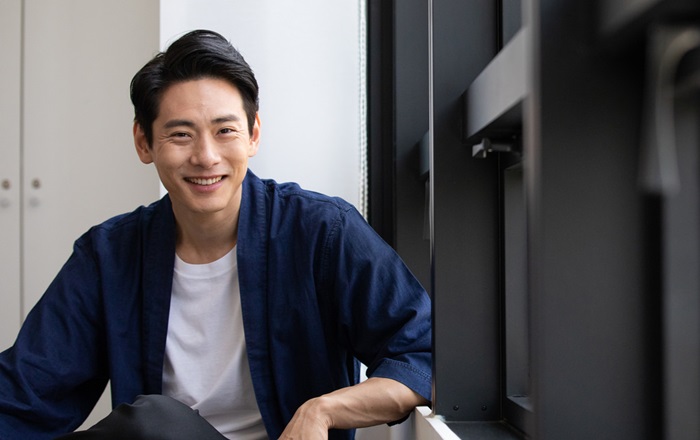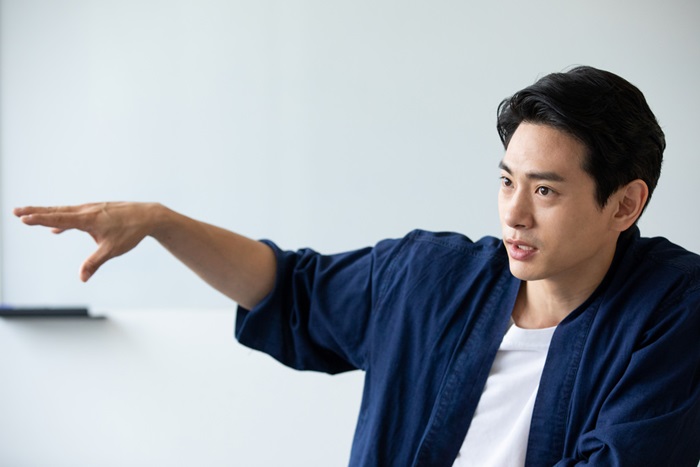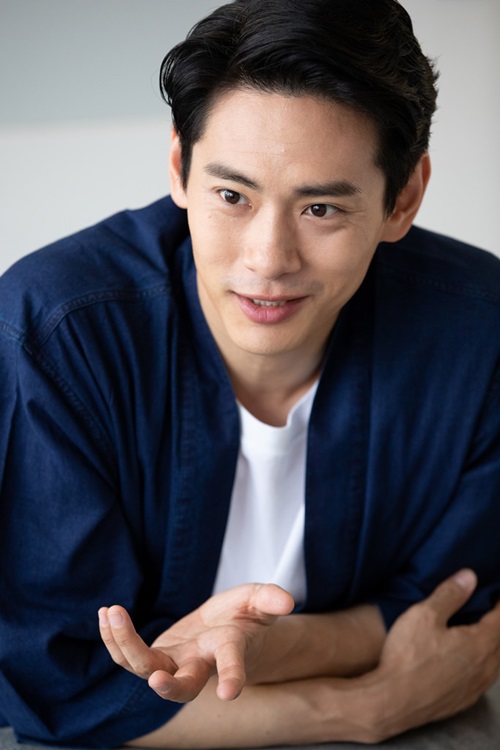
Yoo Teo made his first appearance at this year’s Cannes Film Festival with his role as the Korean-Soviet rock singer Viktor Tsoi in the Russian movie “Leto.” He received favorable responses for his performance expressing the agony of the singer in a delicate manner.
By Kim Tae Won and Yoon Sojung
Photos = Kim Sunjoo
Seoul | June 7, 2018
“In my view, young Viktor Tsoi was a melancholy poet,” said Yoo Teo, the main actor who played the Korean-Soviet rock singer.
The Korean-Soviet rock martyr Viktor Tsoi is a symbol of freedom and embodies the image of wildness.
However, Yoo, who played the rock icon in the film “Leto,” had a different interpretation. The actor understood Tsoi’s confusion as an East Asian living in Europe, something he has done himself before his debut, which he pointed as “something I have in common” with the singer.
Born to a Korean miner and Korean nurse in Germany, actor Yoo was raised in Europe. After beating the odds of 1 in 200, he was chosen to play Viktor Tsoi in the film “Leto,” directed by Kirill Serebrennikov.
The movie was listed as one of the competition films at the 71st Cannes Film Festival, and Yoo has now become the first Korean actor to star in an international film to ever step onto the stage in Cannes.
Korea.net sat down with the actor to learn more about his philosophy of acting and his story at Cannes, on June 7, the day “Leto” was to be released in theaters across Russia. Yoo expressed his hope that he would one day “become one of the leading actors who represents Korea.”
- Congratulations on your appearance in Cannes. Please tell us about the film “Leto.”
The movie portrays Tsoi’s band Kino in 1981, one year before their debut. It focuses on the triangle between Tsoi, another band member, Mike Naumenko, and his wife Natacha.
- You have now shown up on the red carpet in Cannes, but you’re still not that famous back here in Korea. Tell us about that.
In the past, I was a basketball player in Germany, but I had to stop because I got injured. I went to the U.S. to learn about acting and found that there’s not much difference in terms of psychology between actors and basketball players. Basketball players receive applause on the court while actors receive big rounds of applause on the stage for their performances. On the other hand, I found acting to be more attractive, as it allows me to explode my suppressed feelings.
Since then, I’ve been building my acting career in both Korean and non-Korean films, such as the Korean film “Actresses” (2009) and “Equals” (2015) and in Hollywood “Bitcoin Heist” (2016) and in the Vietnamese-Thai film “The Moment” (2017).
- You’ve never acted in Russia before. How did you get the role?
A friend of mine, a descendant of ethnic Koreans in Uzbekistan, is a movie director who told me about the casting. So I took some selfies and sent them in the application. I heard that director Serebrennikov selected my photos, assuming that all of them were different people, but they turned out to be the same actor. Later, they contacted me for an audition. So I flew to Moscow, sang Viktor Tsoi’s songs, and got the role.
- It must have been hard to play Viktor Tsoi.
Viktor Tsoi is considered a hero in Russia. I was so concerned about how I could channel such a person, but I did believe I had something in common with him. Both of us were raised in a Korean family in Europe, dominated by white Caucasian culture, and experienced confusion in terms of identity while growing up. I assumed that Tsoi developed his sensibility by expressing it through music, acting and the arts. In fact, his early songs sound like poems to me. I tried to express this inner conflict that collides external pressure and the sensibility of youth.
- You couldn’t have known any Russian. Did you find the filming difficult?
Director Serebrennikov emphasized that actors need to make sounds from the mouth when acting. So I had to act all the scenes in Russian for myself. For three weeks, I divided all the lines and rhymes of the songs by every second and practiced it all in Russian. I only stopped when I had to eat or work out. In the end, an actor who has a similar voice tone as Viktor Tsoi dubbed the voice in the actual movie, but thanks to such efforts, I was able to deliver my feelings to the voice actor and have a better communion with the whole team.
I had a great working relationship with the actors. Irina Starshenbaum, who played Natacha, understood me and helped me a lot as she joined us after coming back to Russia from filming in Germany.

Yoo says that one of the best moments for him while working in Russia was when he was able to see a play at the Gogol Center in Moscow.
- This is your first time on the stage at Cannes. What was the most impressive moment for you?
The most memorable moment was when I met director Terry Gilliam who starred in the movie “Lost in La Mancha,” which I consider a textbook for me. I had a chance to have a small chat with him at a restaurant. When I told him my movie was nominated as a Cannes competition film, he wished me good luck.
- Has your life changed any after Cannes?
I can now communicate directly with film directors who I’ve always admired. I sent a message to director Ruben Östlund from Sweden and even got an answer.
In Moscow, I had a chat about acting with Andrei Zvyagintsev who produced the film “Leviathan.” However, in fact, nothing has really changed for me between a month ago and myself now. I’m just thankful to be in the spotlight these days.
- So what are your ultimate goals?
I hope to be reborn as an actor who can lift Hallyu even higher, that popularity of Korean TV shows, movies and pop music across East Asia and elsewhere, but in the arts, too, not just in terms of pop culture. I’ll work hard to become an actor who can deliver the same extent of stimuli and feelings I felt in the movies, and give that to movie-goers.

’I am Korean, even though I was born in Germany,’ says Yoo. He expresses his hope that his presence can help make Korean films more widely known.
twkim0717@korea.kr